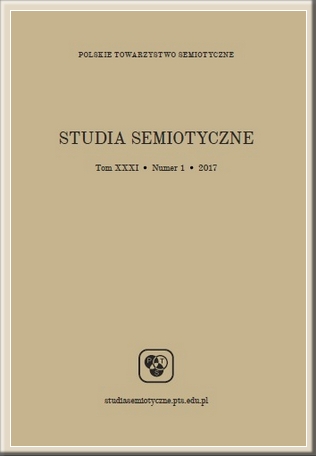Abstract
DOI: http://doi.org/10.26333/stsen.xxx.03
According to the most popular (so-called “orthodox”) theories, counterfactuals with impossible antecedents are vacuously true. Critiques of this view argue that contrary to this, we tend to consider only some of them true and others to be false. In his recent paper (Counterpossibles) Timothy Williamson has ingeniously explained the motivations for the orthodox view and argued that although there are some heuristic reasons that may suggest the plausibility of the unorthodox view, they are fallible. The most important of Williamson’s arguments is that the unorthodox interpretation is inconsistent with the heuristic assumption that supposedly motivates this very view. The aim of this paper is to consider Williamson’s critique and to support the unorthodox approach towards counterpossibles. In order to do so, we argue in favor of the modified version of the heuristic assumption.
References
Barcan Marcus, R. (1995). Modalities. Oxford: Oxford University Press.
Bennett, J. (2003). A Philosophical Guide to Conditionals. Oxford: Ox-ford University Press.
Berto, F. (2013). Impossible Worlds. In: E. N. Zalta (Ed.), The Stanford Encyclopedia of Philosophy. Retrieved from: http://plato.stanford.edu/entries/impossibleworlds
Brogaard, B., Salerno, J. (2013). Remarks on Counterpossibles. Synthése, 190(4), 639–660.
Edgington, D. (1995). On Conditionals. Mind, 104(414), 235–329.
Emery, N., Hill, C. (2017). Impossible Worlds and Metaphysical Explana-tion: Comments on Kment’s “Modality and Explanatory Reasoning”. Analysis, 77(1), 134–148.
Grice, H. P. (1975). Logic and Conversation. In: P. Cole, J. Morgan (Eds.), Syntax and Semantics, 3: Speech Acts (41–58). New York: Academic Press
Hitchcock, C., Sober, E. (2004). Prediction Versus Accommodation and the Risk of Overfitting. British Journal for the Philosophy of Science, 55(1), 1–34.
Jackson, F. (1988). Conditionals. Oxford: Blackwell.
Lewis, D. (1973). Counterfactuals. Oxford: Blackwell.
Lewis, D. (1986). On the Plurality of Worlds. Oxford: Blackwell.
Nolan, D. (1997). Impossible Worlds: Modest Approach. Notre Dame Journal of Formal Logic, 38(4), 535–572.
Priest, G. (2009). Conditionals: A Debate with Jackson. In: I. Ravenscroft (Ed.), Minds, Worlds, and Conditionals: Themes from the Philosophy of Frank Jackson (311–335). Oxford: Oxford University Press.
Stalnaker, R. (1968). A Theory of Conditionals. In: N. Rescher (Ed.), Studies in Logical Theory (98–112). Oxford: Blackwell.
Stalnaker, R. (1996). Impossibilities. Philosophical Topics, 24(1), 193–204.
Williamson, T. (2007). Philosophy of Philosophy. Oxford: Oxford Univer-sity Press.
Williamson, T. (2016a), Knowing by Imagining. In: P. Kung, A. Kind (Eds.), Knowledge Through Imagination (113–132). Oxford: Oxford University Press.
Williamson, T. (2016b). Counterpossibles in Metaphysics. In: F. Kroon (Ed.), Philosophical Fictionalism. Oxford: Oxford University Press.
Williamson, T. (2018). Counterpossibles. Topoi, 37(3), 357–368.
Yagisawa, T. (1988). Beyond Possible Worlds. Philosophical Studies, 53(2), 175–204.

